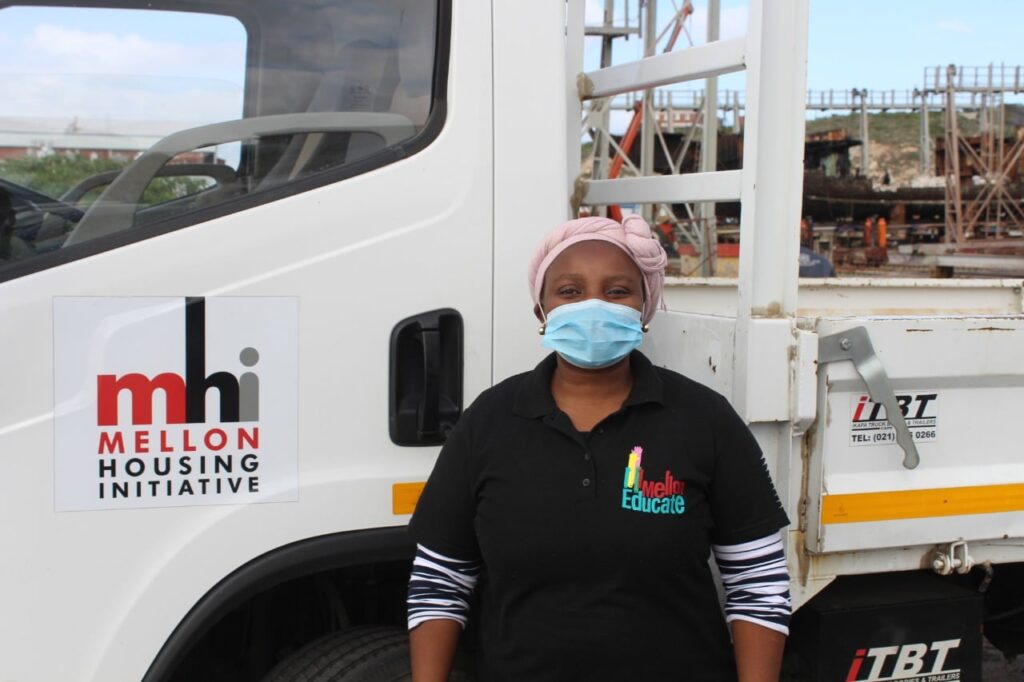Q&A with Mellon Educate Staff in South Africa during Covid-19 Lockdown
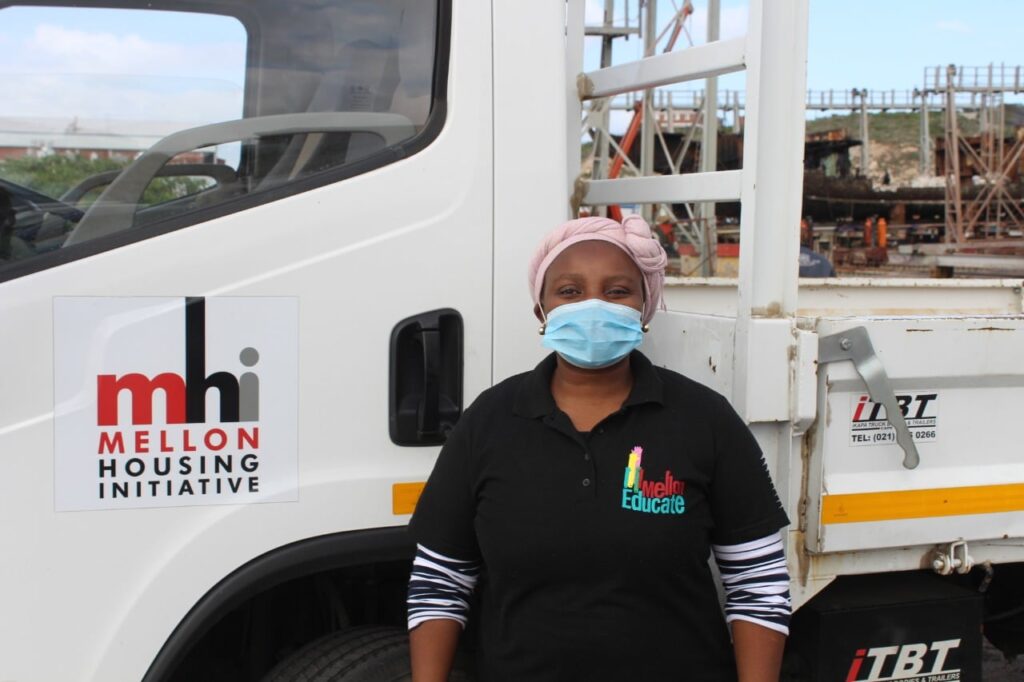
What is the situation with Covid-19 and the lockdown at the moment?
by Babalwa – Mellon Educate South Africa, Charity Director & Senior Community Liaison Officer
Nationally we are standing at 97402 positive cases with 51608 recoveries. So far 1930 people have died. Western Cape is the hardest hit by the corona virus with about 57% of infections, as a result becomes the epicentre. According to the experts WC is nearing its peak. Our townships, like Khayelitsha have high rates of infections and are regarded as hotspots. We are on day 88, level 3 of lockdown. The easing out of most businesses during lockdown will assist the economy of the country but put more risk to most vulnerable people. Social distancing is still difficult to practice in informal settlements and public transport. Lockdown was necessary to flatten the curve but people had to go back to work to be able live. Most companies closed their businesses and left people without jobs. We are happy that SA is authorized the use of decamethasone to help serious infected people. This will minimise death toll.
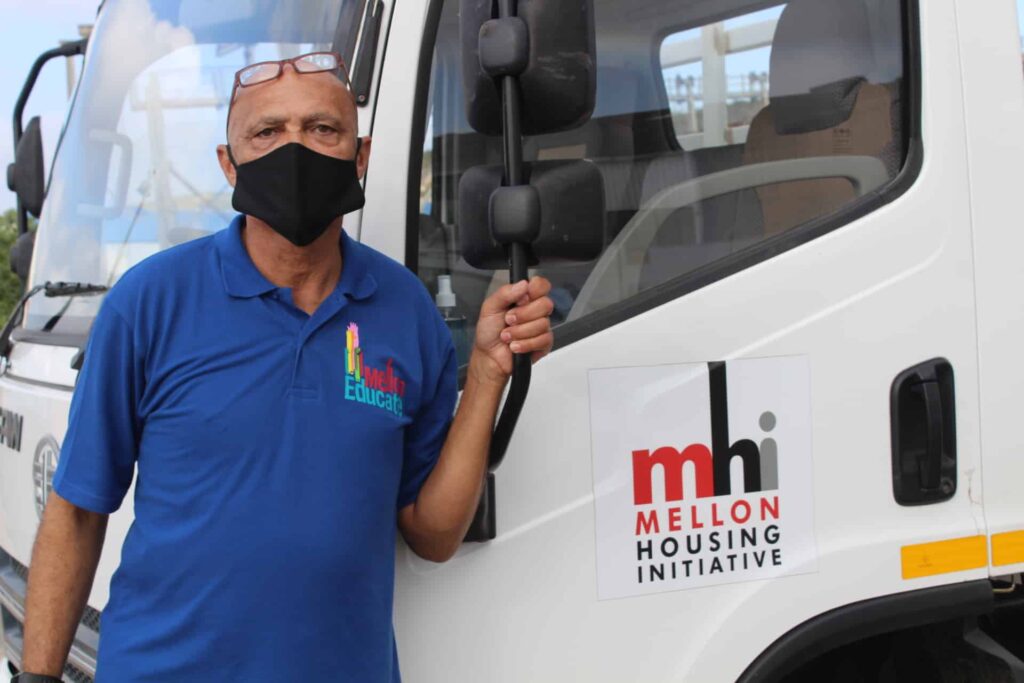
How are people in the townships managing?
by Benni, Maths Specialist
All the learners that attend our schools are coming out of townships such as Mfuleni, Enkululekweni, Happy Valley and Khayelitsha. We have thousands of families living shanty dwellings for shacks that are built in very close proximity to one another and in many cases some households have as many as 10 people living together making social distancing very difficult.
Almost all of the people are dependent on a social grant that is not enough to feed the families. Most people are unemployed. With the prevalence of Covid-19 and the state of lockdown it was impossible for those people who do have jobs to supplement this meagre grant. This resulted in a condition where people became desperate for food and basic necessities. The sheer number of people staying in the townships, makes it difficult to get access to health facilities. Many people that has comorbidities like HIV and AIDS and TB, cannot access their medication. The availability of health care is under tremendous pressure and hence we find that people don’t get their medication timeously. In addition the people that were tested for the virus, had to wait in some cases up to 10 days for their results. This gives the virus the opportunity to spread for the 10 days if a person is tested positive. The people are traumatised because of lack of access to basic health care facilities and a lack municipal service delivery that are also under pressure.
In many cases there are backyard dwellers on the same property, they had to use the same ablution facilities and taps, infection can spread rapidly. Thousands of people do not have access to facial masks and hand sanitizer because of the lack of money. They are obviously not educated on how to wear these masks properly and sanitize or wash their hands regularly and properly. This obviously exacerbated the spreading of the virus. When the people are lucky enough to get food parcels distributed by the government and NGOs, the people rushed to the scene and they do not maintain social distance as they are told to do, because of their desperation. The queues are very long. Not all the people get food parcels as there are just not enough to meet the need of the struggling people. The government promised a covid-19 grants to bring temporary relief to the struggling people, but only a small fraction of the people received this grant. This further fuels the anger of the struggling people.
Khayelitsha, where Mellon educate are servicing 6 schools and delivered 1000s of food parcels, has currently more than 5700 positive cases of the Covid-19 virus (as at 21 June 2020). This number is growing at an exponential trend daily. Khayelitsha also has the highest number of Covid-19 cases within the Metro of Cape Town. Currently the fear of the virus is spreading much faster than the virus itself. They put the people in this Township in a panic situation. Today the principals of all the schools in Khayelitsha met today discuss this grim situation and currently all schools has been closed by the communities in Khayelitsha until further notice. The main request is that all schools need to be kept clean and sanitized properly, because many teachers and learners are now falling victim to this pandemic.
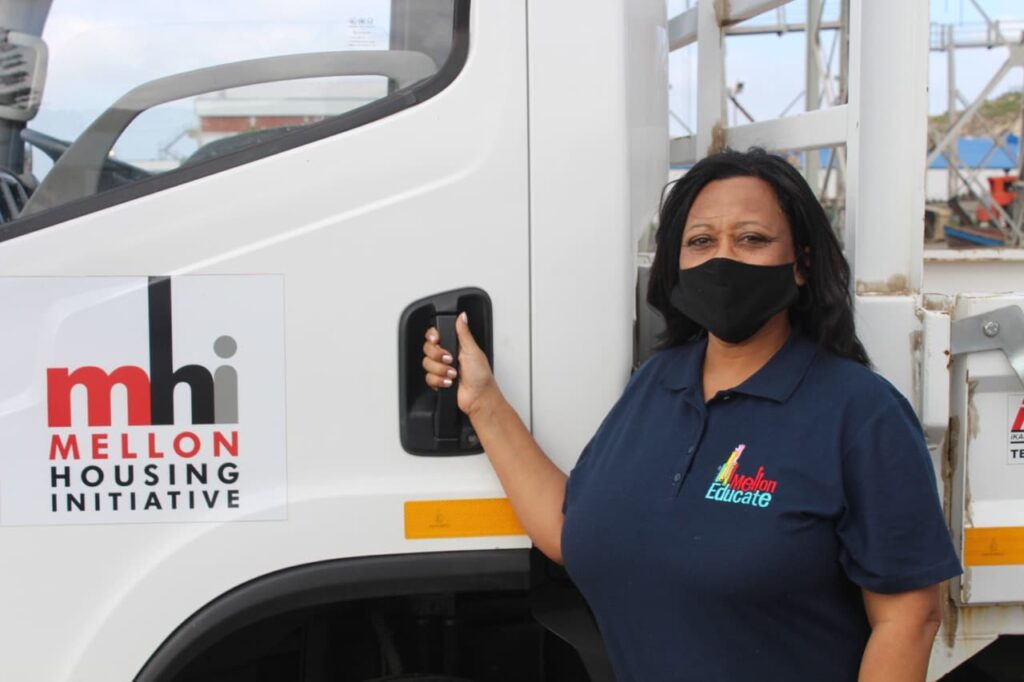
How are schools coping?
by Denise, Literacy and Language Specialist
At this point all Mellon Educate schools have received personal protective equipment for learners and educators from the government. Schools are however concerned that 2 masks per learner will be enough as they are not sure if learners will take proper care of mask, however they have educated the Gr 7 and Gr 12 learners about taking care of masks, social distancing during orientation sessions.
The staged opening of schools helped with putting plans in place before the learners arrive. The SMT had a week of planning before the whole school complement of educators arrived. It also allowed educators to orientate themselves with the new school environment. It also created an opportunity for educators to share their fears and concerns with each other before learners arrived. They also appreciate the check -ins from Mellon Educate team around their well-being. The Mellon educate team also encouraged educators to allow time for learners to talk about how they are coping.
All schools have detailed plans in place, and this certainly serves as a coping mechanism because educators and learners know what is expected of them. Schools adapted a platoon system where learners are being taught on a rotational basis.
Frequent sanitizing and daily screening are taking place at all schools. Despite the detail plans in place for ensuring the safety of learners and educators, many educators are still anxious. They try remaining optimistic and do the best they can under the circumstances.
The Department of Education has trimmed the curriculum to accommodate for time lost. Teaching and learning are taking place and schools had a 95% attendance of learners and educators.
Unfortunately, protest by some members of the community in Khayelitsha has forced some schools in the area to close for the week.
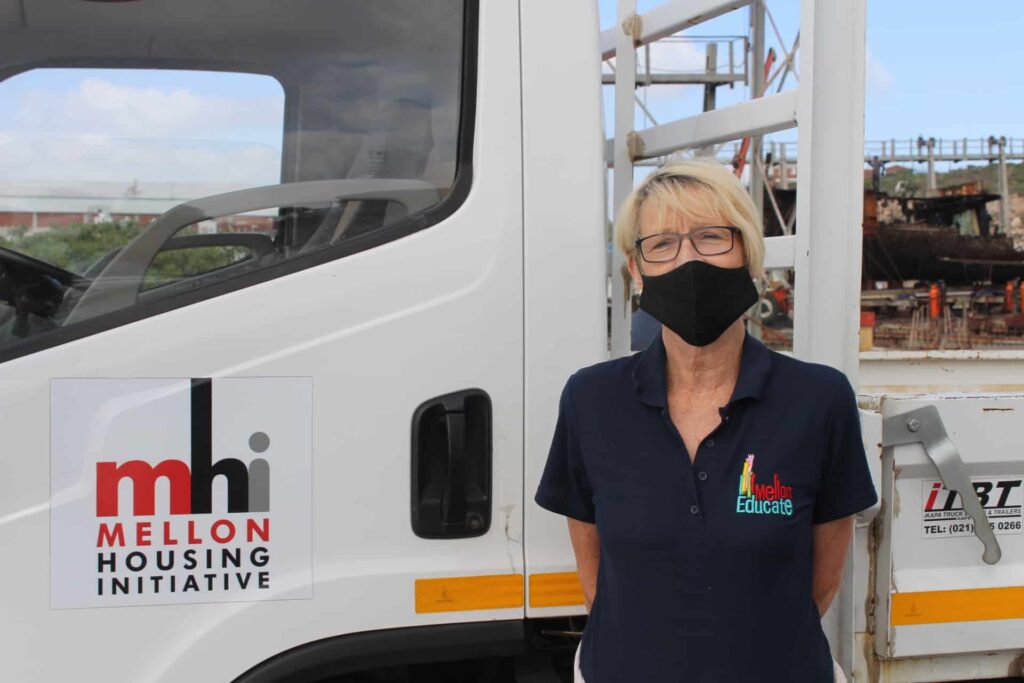
What have Mellon Educate been doing?
by Bernadette, Strategic Partnerships
As soon as the closure of schools was announced on 15th March we immediately shifted our core focus from education to humanitarian support. Knowing that the majority of learners across our partner schools depend on school for their daily meals, this became our first point of departure and so we adapted the daily school feeding programme to the distribution of food parcels. With the food parcels, we could reach both the learners and their families at home. We are fortunate that we were able to work through our amazing Walking Bus parents to ensure we not only distributed food but that we also educated families on safe hygiene practices. A week later a national lockdown was announced and at that point panic about safety, job security and day-to-day survival, not just for our learners but the communities where they live, evolved. Responding to this even greater need, Niall Mellon sent a call out to our volunteers globally to support our Food Parcel campaign, and thanks to the incredible generosity of our donors, partners and volunteers we have been able to deliver thousands of food parcels and meals across the Western Cape, by responding to the many vulnerable communities including refugee communities. Throughout lockdown, our team have support educators across our schools with education material. South Africa is now at level 3, schools are re-opening slowly and our Education Team are gradually turning their main focus back to supporting schools in curriculum delivery as well as learner safety in the school environment. This does not mean that the demand for food is over, if anything it is growing, and we are striving to do what we can to continue this support where the greatest need lies.
How is this funded?
by Bernadette, Strategic Partnerships
The food shortage crisis hit the most vulnerable communities in a devastating way across the world. It was the same here in South Africa, the fallout was literally over-night. It’s a very humbling experience to be able to say, that thanks to the efforts and donations from our international volunteers also overnight, we were able to hit the ground running! There was no pause FOR THOUGHT, they ‘just did’. This reliable dedication and goodwill from all our volunteers has enabled us to distribute thousands of food parcels in the 108 days of lockdown, turning no request away so far. As I write this we are packing hundreds of parcels for families living in informal housing structures, close to our partner schools in Khayelitsha, while at the same time we are sorting through next week’s requests . In addition to the financial contribution of our volunteers, we have had amazing support from our partners and donors both in Ireland, the UK and South Africa. The need is enormous, so we are continually working on forging partnerships with local businesses such as Pick’n’Pay and community organisations to sustain the programme for as long as we can.

How do the community kitchens work?
by Ronel, Psychological & Social Support
Since the Outbreak of the Covid 19 pandemic and the lockdown,the communities that we work in have been struggling to survive. a Large percentage of people are working in an informal setting where they receive a daily wage for example, domestic workers and gardeners and are now unemployed. The lockdown has caused a loss of income. The already struggling community are hungry. Existing nutritional kitchens within the areas have been under strain to provide food and new nutritional kitchens have been started by the community for the community. Community nutritional kitchen are mostly run by women in the community on a voluntary basis from their own small income and circle of friends mostly in the same situation. Needless to say, it is difficult to sustain. With our footprint in the community, Mellon Educate received requests and heard about these nutritional kitchens in need and with the help of donors we provide food assistance. A few women will come together and start cooking soup or a meal per day out of their own pocket providing their immediate community with food. They feed mostly children and what is left are given to adults. People will get to know the time that the meal are ready and would bring their own container from home to receive their meal. As Mellon we advise on safety measures to prevent Covid 19. It is clear to see how these rules are obeyed. Receivers are wearing masks and keeping a social distance most nutritional kitchens also provide sanitizer for cleansing of hands. Nutritional kitchens estimates the need within their community and usually cook one or two big pots of food and the recipients range around 150 or more people at a time. Some kitchens provide porridge in the morning as well as a meal later in the day. People are extremely grateful and appreciate the meals. Mellon Educates food donations extends the number servings as well as the amount that these ladies can provide per day. If we do not provide food, the Nutritional kitchens would be under strain of survival as the economic impact of Covid 19 are felt by the woman donating. I feel honoured to work with these ladies who are offering their time and financial contributions toward this.
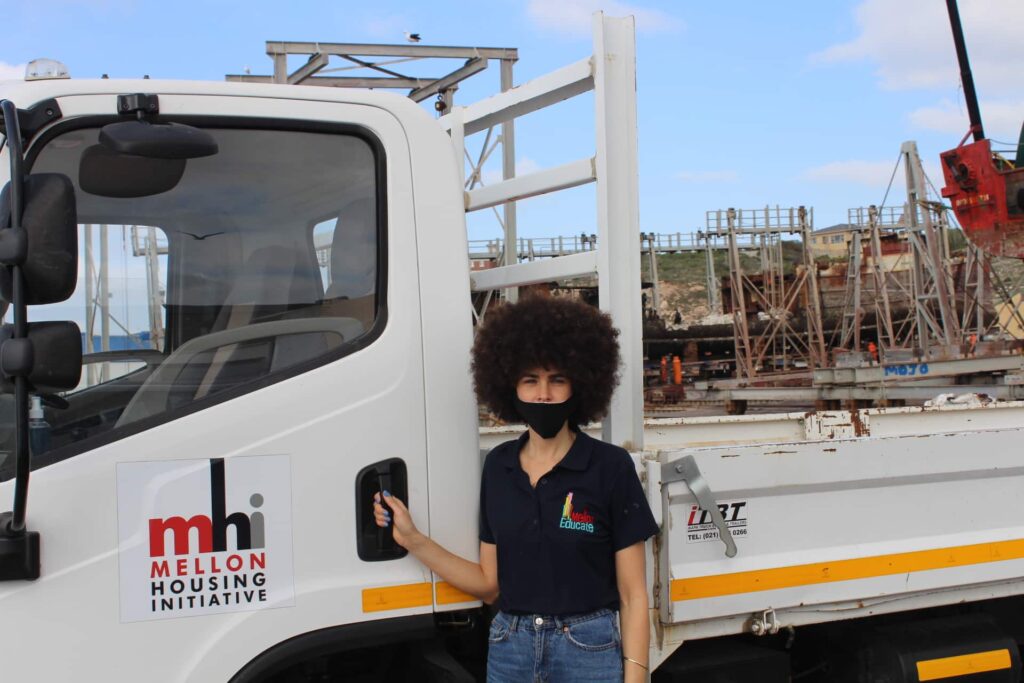
What is next for the ME team in South Africa?
by Holly, Partnership & Programme Development
Mellon Educate team have worked tirelessly throughout the lockdown, adapting to a new normal and finding alternative and effective ways to continue to support our schools. With the young child always in mind, every effort has been made to eliminate the many additional obstacles the Covid-19 pandemic has brought for our learners, educators and school community in general.
The development of educational, hygiene safety resources and videos and making use of WhatsApp to share with educators and parents, proved a great success as it reached so many. The Food Parcel Drive as well as supporting of Food Kitchens helped us to reached both the learner and their family during this difficult time, as falling sick to malnutrition is a great concern.
With the gradual phased opening of schools which began in June, Mellon Educate Team are embracing a new modus operandi: select school visits to adhere to government policy, individual screens will be carried by team members for meetings face-to-face, additional virtual support and meetings via Microsoft Teams which government has implemented in schools, a hygiene and safety campaign to bring and instill ongoing awareness amongst learners.
The need for food and nutrition continues and we are committed to navigating both our education support as well as keep our children fed.
PLEASE DONATE
€20/£15 CAN FEED A FAMILY FOR A MONTH!
Pagespeed Optimization by Lighthouse.
